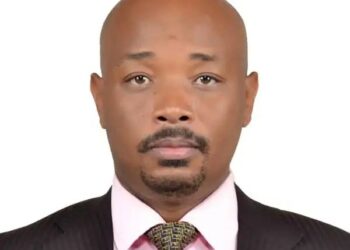Every nation has a list of the fall and rise of both good and bad leaders who come and go.
Why should leaders serve until they grow weary without planning for succession as if they shall be recycled?
Even if you’re excellently flourishing with development, that organization will inevitably undergo a transition with or without you. Not preparing a successor is not only leadership short-sightedness but also self-centeredness. Responsible functional leaders develop and manage others to replace them.
I have seen both secular and sacred (faith) organizations here locally and internationally thrive and at the demise of the leader, they too die. Such organizations are built on personality and not on structures and principles.
Many shun talking about succession in fear of a connotation of preceding death. They incorrectly think if one asks for your successor, one envisions your exit, above all, death. Not talking about it is not guarantee that you won’t have a successor. Succession is both a divine and human responsibility as seen in scripture. Joshua was trained by Moses but he did not prepare any successor and after him, arose a generation that did not know God and did all evil (Judges 2:10, 11). Is that the transition you would like to have?
Every leader should desire that the organization they have outlives them. Organizations can prepare for a transition in different events:
While staff is on leave, for job promotion, for a new job, on emergency or demise of leader.
The Bible has an endless list of characters who had successful leadership transition like Moses to Joshua, Samuel to David, Elijah to Elisha, Jesus to disciples and Paul to Timothy among others.
Succession plan begins by:
Identifying leadership qualities from potential leaders.
Preparing potential leaders
Sharing tasks with those leaders
Assessing the leaders and commissioning them. All these should be presided over by the incumbent leadership whether at family, church or national level.
Lack of succession plan among leaders makes some leaders think either their spouse, son or immediate family member can be their successor. It is mainly rooted from fear to lose authority and self-centeredness.
How then did the biblical leaders prepare for succession?
First, they surrounded themselves with apprentices (disciples) and poured out their life to them. They recognized the potential leaders and prepared them in the model; I do, you watch, I do you do, you do I watch. Jesus prepared his disciples thereafter called Apostles for three years.
They discerned potential leaders and developed them. Moses had many followers but Joshua succeeded him.
Joshua was with Moses from the very beginning; from Egypt, through the sea, the giving of Laws, leading a team, then witnessing the death of Moses (Deut.34). Discerning one’s heart and ability to further the ministry is very important.
They shared leadership. Moses delegated duties after Jethro’s counsel (Exod. 18:18, 19), sent Joshua on mission as spy (Numb. 13) as apprentice. Jesus sent disciples, they came back with mission report for assessment by their master and waited for further deployment. Meanwhile, they continued learning as until their master left them to take on the ministry ( Luke 10:3).
They knew they were not indispensable. As a leader, you are dispensable and that organization can surely operate without you. Christ promised those who believe in him to do more than he did (Luke 14:12) and through the Holy Spirit, the disciples furthered the gospel to the ends of the world (Acts 1:8). Joshua took over from Moses and led the Israelites to the Promised Land (Deut. 34:9). In all, we see the heart of furthering the work.
Even in family setting as seen in the Old Testament, the eligible successor would be identified. In this case, the first born male would be the heir and the entire family was prepared for that transition.
Leaders should consider themselves interim and mind about their timeline in every assignment undertaken. The office you hold shall be held by another for better or for worse but you can set a trend for positive transition.
It is absolutely untrue to say there isn’t any to do what you are doing. You are not successful in leadership until you reproduce yourself. John C. Maxwell, a leadership trainer and author says, “A leader who produces other leaders multiplies their influence”. God has never called any in perfect state but he perfects his own. Make a plan to nurture leaders and see them serve along with you.
Ponder on world leaders who did well but never left any legacy, no continuation of what they did for decades.
Our nation, including the church today is at crossroads. Are you obstructing or aiding transition? How many potential leaders are you investing in? Would you like to witness the transition or is it none of your business? Prepare now or else your labor shall be compared to that of an ostrich which lays eggs, warms them in the sun, buries them in sand yet not mindful of what can crash them (Job 39:14-16)in its absence. It is total vanity (Eccl. 1:2) of all your labor.
mumbej@yahoo.com
The author is a Theologian and Educator
Do you have a story in your community or an opinion to share with us: Email us at editorial@watchdoguganda.com













